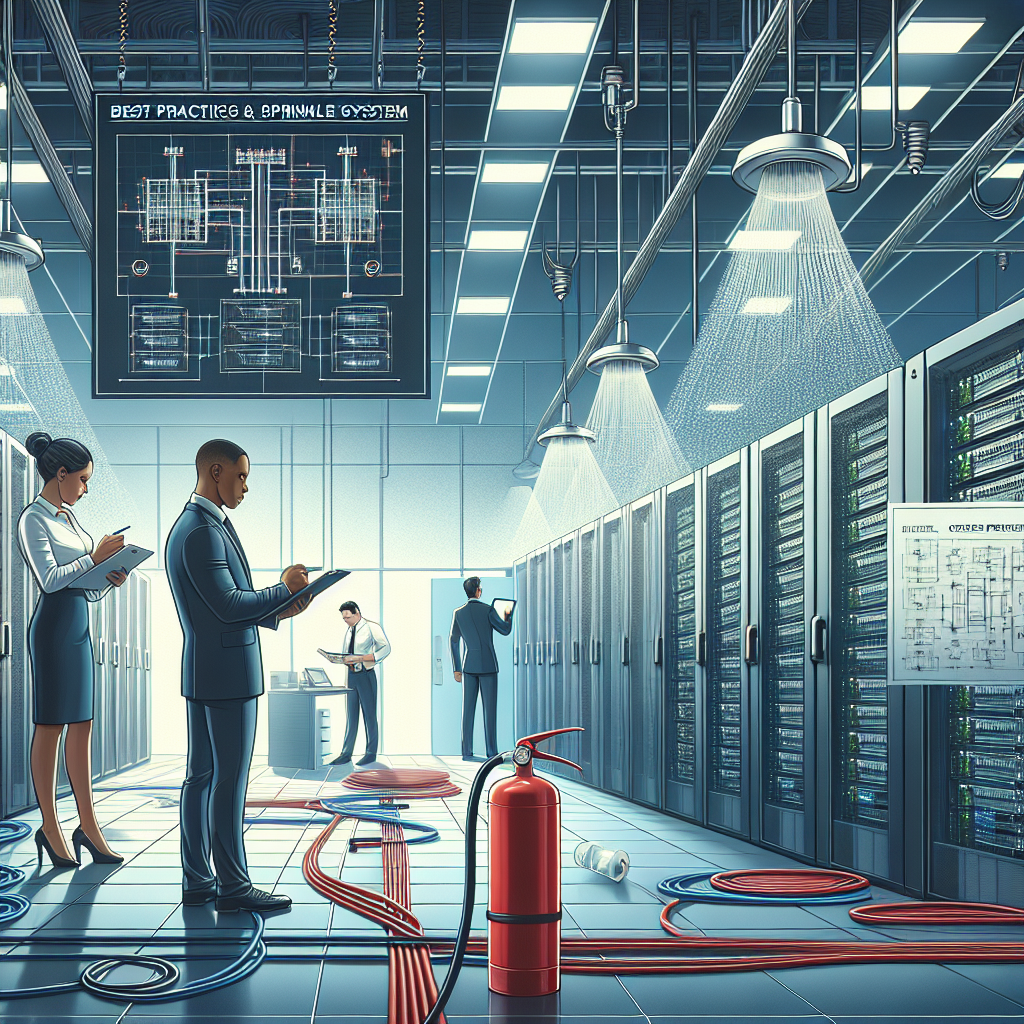Your cart is currently empty!
The Importance of Fire Suppression in Data Centers: Best Practices and Strategies

As data centers continue to play a crucial role in the modern business landscape, the importance of fire suppression in these facilities cannot be overstated. With the amount of sensitive and valuable information housed in data centers, the threat of a fire can have catastrophic consequences for both the business and its customers. Therefore, having effective fire suppression systems in place is essential to protecting the data center and preventing potential disasters.
One of the best practices for fire suppression in data centers is to implement a multi-layered approach. This means using a combination of different fire suppression systems to provide comprehensive coverage and ensure that any potential fires are quickly and effectively extinguished. Some common fire suppression systems used in data centers include water-based systems, gas-based systems, and clean agent systems.
Water-based systems, such as sprinklers, are often used as a first line of defense in data centers due to their affordability and effectiveness in suppressing fires. However, water-based systems can also pose a risk to sensitive equipment and data stored in the data center. Therefore, it is important to properly design and maintain these systems to minimize the risk of water damage.
Gas-based systems, such as FM-200 and Novec 1230, are popular choices for data centers because they are effective in suppressing fires without causing damage to equipment or leaving residue behind. These systems work by displacing oxygen in the air, starving the fire of the oxygen it needs to burn. Gas-based systems are also quick to deploy and can suppress fires rapidly, minimizing damage to the facility.
Clean agent systems, such as CO2 and inert gases, are another effective option for fire suppression in data centers. These systems work by removing heat from the fire and reducing the oxygen levels in the air, effectively extinguishing the fire without causing damage to equipment or leaving residue behind. Clean agent systems are also environmentally friendly and safe for use in occupied spaces.
In addition to implementing a multi-layered approach to fire suppression, data centers should also have a robust fire detection system in place. Early detection of a fire is key to minimizing damage and ensuring the safety of personnel in the facility. Smoke detectors, heat detectors, and flame detectors should be strategically placed throughout the data center to quickly identify and alert staff of any potential fire hazards.
Regular maintenance and testing of fire suppression systems are also critical to ensuring their effectiveness in the event of a fire. Data center operators should conduct regular inspections, testing, and maintenance of all fire suppression systems to ensure they are in proper working order and ready to deploy when needed.
In conclusion, the importance of fire suppression in data centers cannot be overstated. Implementing a multi-layered approach to fire suppression, including water-based, gas-based, and clean agent systems, along with a robust fire detection system, is essential to protecting the data center and preventing potential disasters. By following best practices and strategies for fire suppression, data center operators can ensure the safety of their facility, personnel, and valuable data.

Leave a Reply